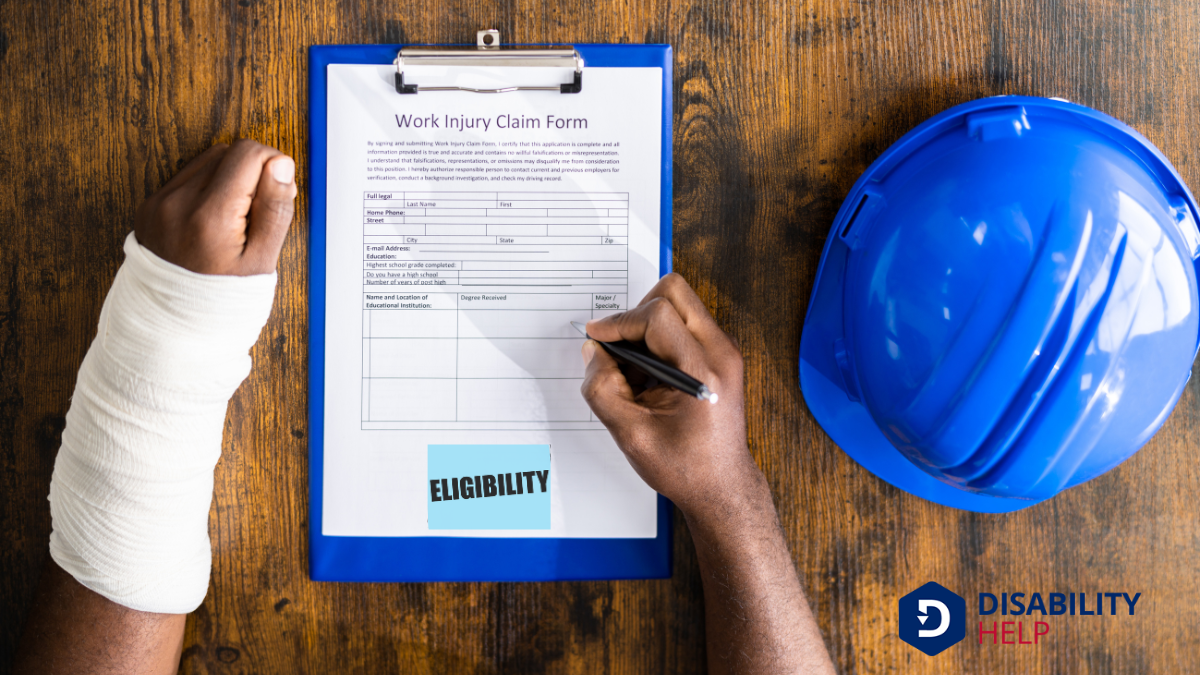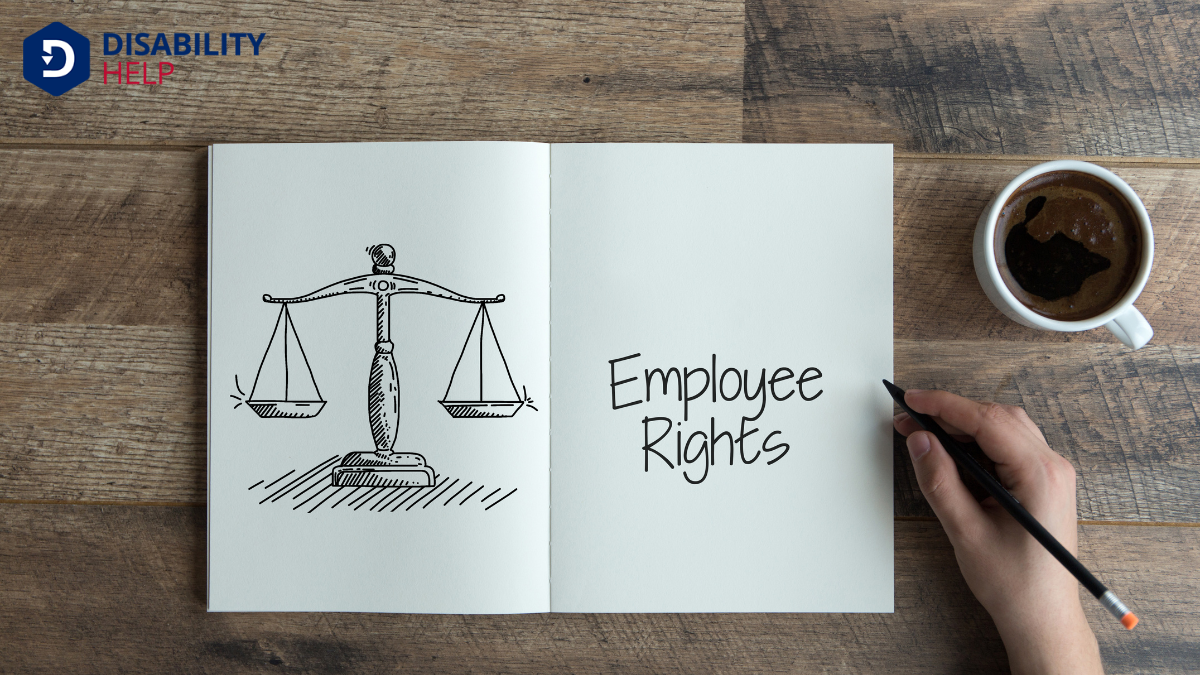In Wisconsin, workers' compensation supports us if we're injured at work, covering medical care and part of our lost wages without needing to prove employer fault. Most employers must have insurance if they meet specific criteria, and we're usually covered from day one, although certain workers might not be eligible. It's crucial to report injuries promptly, seeking medical attention right away to document everything accurately. Our benefits can include various types of disability payments and even vocational rehabilitationServices that help individuals with disabilities prepare for, obtain, and maintain employment., helping us return to work. For any disputes, we have rights and support networks to guide us. Let's unpack more details together.
Key Takeaways
- Wisconsin Workers' Compensation provides medical treatment and wage loss compensation for employees with work-related injuries or illnesses.
- Most employees are covered from the start; independent contractors and certain others are excluded.
- Claims require notifying the employer within 30 days and providing necessary documentation.
- Benefits include medical expense coverage, wage loss compensation, and vocational rehabilitationThe process of helping individuals with disabilities achieve and maintain their optimal physical, se... services.
- Disputes can be resolved through communication or by filing a hearing application with the Department of Workforce DevelopmentPrograms and policies that aim to improve the skills, employability, and job opportunities for all w....
Overview of Wisconsin Workers' Comp
Wisconsin's workers' compensation system is an essential safety net for employees who suffer from work-related injuries or illnesses. It guarantees that we, as workers, can access medical treatment and financial support without the burden of proving fault or negligenceA legal concept where a party fails to exercise reasonable care, resulting in harm to another person....
This system simplifies the process by providing a structured framework that outlines our rights and responsibilities, helping us focus on recovery rather than legal battles.
Under this system, employers carry the responsibility of providing workers' compensation insurance. This coverage is significant because it guarantees that if we're injured on the job, our medical expenses and a portion of our lost wages are covered.
Understanding this framework helps us appreciate the protections in place designed to reduce financial hardships during recovery.
Moreover, the system fosters a balanced approach by protecting both employees and employers. While we benefit from the assurance of coverage, employers gain protection against lawsuits, promoting a fair working environment.
This symbiotic relationship aims to maintain workplace safetyThe policies and practices in place to ensure the physical and mental well-being of all employees, i... and fairness, guaranteeing that we all have peace of mind knowing there's a system that supports us if accidents occur.
Having this knowledge empowers us to navigate our rights confidently.
Eligibility for Workers' Compensation

To better understand our rights, we need to know about eligibility for workers' compensation. In Wisconsin, most employees are covered from the moment they start working. The law mandates that employers carry workers' compensation insurance if they employ three or more full-time or part-time employees.
Even if there are fewer than three employees, the law still applies if the employer has paid combined gross wages of $500 or more in a calendar quarter.
However, there are exceptions. Certain workers, such as independent contractors, volunteers, domestic servants, and farm employees, mightn't be eligible in some situations. It's vital to determine our employment status to see if we're covered. If we're unsure, we should consult with a legal professional or our employer.
To qualify for benefits, the injury or illness must be work-related, meaning it happened while performing job duties or as a result of the work environment. This includes injuries from accidents or illnesses developed over time due to work conditions.
Promptly reporting injuries to our employer is essential to guarantee eligibility. By knowing these criteria, we're better prepared to navigate our rights should a workplace injury occur.
Filing a Workers' Comp Claim
Let's walk through the process of filing a workers' comp claim in Wisconsin.
First, we'll need to gather the necessary documentation, such as medical reports and incident details, to guarantee our claim is complete.
Following these steps carefully will help us navigate the system and secure the benefits we're entitled to.
Claim Filing Process
When you're ready to file a workers' compensation claim in Wisconsin, understanding the process can make a significant difference.
Let's walk through it together so we understand what to expect and can approach it confidently. The filing process has a few key steps we should follow to guarantee our claim is submitted correctly and efficiently.
- Notify Our Employer: We must inform our employer about the injury or illness as soon as possible, ideally within 30 days. This step is essential because timely notification helps prevent disputes about the incident's occurrence.
- Seek Medical Attention: It's important to get medical care immediately, not only for our health but also to document the injury professionally. The medical report will play an important role in supporting our claim.
- Complete Necessary Forms: Our employer should provide us with the forms needed to file the claim. We should fill these out accurately and honestly, as any discrepancies can lead to complications.
- Monitor the Claim: After submission, we must stay in touch with our employer and insurance company to track the claim's progress.
Address any requests for additional information quickly, making sure the process moves smoothly.
Required Documentation Steps
A solid foundation of documentation can be our greatest ally when filing a workers' compensation claim. Let's make certain we've everything in order to support our case effectively.
First, we need to report the injury to our employer as soon as possible. This immediate action not only follows legal requirements but also strengthens our claim by establishing a clear timeline.
Next, let's gather all medical records related to our injury. These documents should include doctor's notes, treatment plans, and any prescriptions. They serve as concrete evidence of our medical condition and the necessity of our treatment.
We should also keep copies of any correspondence with our employer or the insurance company regarding our claim.
Additionally, it's important to maintain a personal record of the injury. We can jot down details such as how the accident happened, the symptoms we experienced, and any work missed due to the injury. This personal blog can provide important context and fill in gaps that official documents might leave.
Finally, let's consult with a workers' comp attorney if we feel overwhelmed. They can help make certain we've compiled all necessary documentation, increasing our chances for a successful claim. Together, we'll navigate this process efficiently.
Employer Responsibilities
How do employers guarantee compliance with Wisconsin's workers' compensation laws? As employers, we must verify that we're fully compliant by understanding and fulfilling our responsibilities.
These responsibilities are designed to protect both the employer and the employees, promoting a safe and fair working environment.
To confirm we're meeting these requirements, we need to:
- Obtain Insurance Coverage: We must secure workers' compensation insurance through an authorized provider or qualify for self-insurance if eligible. This coverage is necessary for protecting our employees and our business.
- Post Notices: It's important to display the necessary notices about workers' compensation rights and contact information visibly in our workplace. This keeps employees informed about their rights and the process.
- Report Injuries Promptly: We need to report any work-related injuries or illnesses to our insurance carrier immediately. Timely reporting is critical for efficient claims processing and compliance.
- Maintain Accurate Records: Keeping detailed records of any workplace injuries, treatments, and claims is mandatory. Accurate documentation helps in case of any disputes or audits.
Employee Rights and Obligations

Understanding our rights and obligations as employees under Wisconsin's workers' compensation laws is vital for safeguarding our interests in the workplace.
First and foremost, we've the right to file a claim if we suffer a work-related injuryAn injury that occurs in the course of employment, potentially leading to temporary or permanent dis... or illness. It's essential we report the incident to our employer promptly, ideally within 30 days, to guarantee our claim remains valid. When we do this, we're entitled to receive medical treatment and any necessary rehabilitation services without delays or denials.
We also have the right to choose our healthcare provider for treatment, allowing us to select someone we trust. If we're unable to work due to an injury, it's important to communicate with our employer and keep records of all medical treatments and expenses. This documentation supports our claim and assures we receive fair compensation.
On the obligation side, we must comply with medical advice and attend all appointments to facilitate our recovery.
We should keep our employer informed about our condition and readiness to return to work. By understanding these rights and obligations, we can navigate the workers' compensation process more effectively and protect our well-being in the workplace.
Types of Benefits Available
Let's explore the types of benefits available under Wisconsin workers' compensation.
We've access to medical expense coverage, which guarantees our medical costs are taken care of.
Additionally, if we're unable to work, wage loss compensation and vocational rehabilitation services help us get back on our feet.
Medical Expense Coverage
Medical expense coverage under Wisconsin's Workers' Compensation system often plays a crucial role in supporting employees who suffer work-related injuries or illnesses.
This coverage guarantees that medical treatment costs are handled without burdening us financially. Understanding what this coverage entails can help us navigate the system smoothly.
Here's what medical expense coverage typically includes:
- Doctor Visits: From initial consultations to follow-up appointments, the coverage guarantees that we receive the necessary care from healthcare providers.
- Hospital Stays: If our condition requires hospitalization, the expenses for room, board, and treatment during our stay are covered.
- Surgery and Procedures: Whether minor or major, surgical procedures related to the injury are part of the covered expenses, reducing our financial worry.
- Prescriptions and Medical Equipment: Medications and any necessary medical aids, like crutches or braces, are also included, guaranteeing we've what we need for recovery.
Wage Loss Compensation
When dealing with work-related injuries in Wisconsin, wage loss compensation is an essential component of the Workers' Compensation system. If we're unable to work due to a work-related injury, wage loss benefits help replace a portion of our lost earnings. Understanding this component can ease some financial worry during recovery.
There are different types of wage loss benefits available. Temporary Total Disability (TTD) benefits apply when we're completely unable to work for a temporary period. During this time, we receive a portion of our average weekly wage until we can return to work.
Temporary Partial Disability (TPD) benefits come into play if we're able to work but at a reduced capacity, resulting in lower earnings. In this case, we receive compensation to make up for part of the wage difference.
Permanent Disability benefitsFinancial assistance provided to individuals who are unable to work due to a disability, such as Soc..., both Total and Partial, address long-term impacts when our injuries have lasting effects. If we can't return to any gainful employmentWork that provides a living wage and is within the capacity of an individual, including those with d..., Permanent Total Disability (PTD) benefits provide ongoing compensation. Meanwhile, Permanent Partial Disability (PPD) benefits compensate for partial but permanent loss.
Navigating wage loss compensation can seem complex, but it's designed to support us through difficult times, ensuring we maintain financial stability during recovery.
Vocational Rehabilitation Services
Steering through the aftermath of a work-related injury can be challenging, but vocational rehabilitation services are here to help us get back on our feet.
These services offer vital support, guiding us toward re-entering the workforce, even if our previous job isn't an option anymore.
Let's break down how these services work in Wisconsin.
- Assessment of Abilities and Interests: First, a counselor evaluates our skills and interests to determine new job opportunities that align with our capabilities.
- Job Placement Assistance: They assist us in finding suitable job openings, offering guidance on applications and interviews to increase our chances of success.
- Retraining Programs: Sometimes, learning new skills is necessary. These services provide training courses tailored to our needs, ensuring we're prepared for a new career path.
- Supportive CounselingProfessional guidance to help individuals cope with emotional, mental, or social challenges, particu...: Emotional and psychological support is also part of the package, helping us navigate the stress and uncertainty that can accompany this shift.
These services are designed to empower us, ensuring we don't face these challenges alone.
With vocational rehabilitation, we're equipped with the tools and resources needed to build a new professional journey.
Let's embrace this support and move forward together.
Dispute Resolution Process
Steering through the dispute resolution process in Wisconsin's workers' compensation system can, indeed, be a complex journey for both employees and employers. When disagreements arise—be it over medical benefits, wage loss, or claim validity—understanding each step is essential.
First, we should attempt an informal resolution through direct communication with the insurer or employer. Sometimes, a simple conversation can clear up misunderstandings and lead to a satisfactory outcome.
If informal attempts don't work, we may need to file an application for a hearing with the Wisconsin Department of Workforce Development (DWD). This step involves preparing documentation that supports our case, such as medical records and reports. Once filed, the DWD assigns an administrative law judge to mediate and potentially decide the case if a resolution isn't reached beforehand.
During the hearing, both parties present evidence and arguments. The judge then issues a written decision. If we're not satisfied with the outcome, we've the option to appeal to the Labor and Industry Review Commission.
Understanding these stages and being prepared at each can make steering this process a little less intimidating and help guarantee our rights are protected.
Common Challenges and Solutions

Maneuvering the Wisconsin workers' compensation system often presents common challenges, but understanding these hurdles can lead us to effective solutions.
One frequent issue is the delay in receiving benefits, which can be distressing when we're counting on financial support. To address this, we should guarantee all paperwork is complete and submitted promptly.
Another challenge is disputes over the extent of our injuries or the benefits we deserve. We can effectively handle this by gathering thorough medical documentation and, if necessary, seeking a second opinion.
To help us navigate these challenges, let's consider these key steps:
- Documentation: Keep detailed records of all medical treatments and correspondence related to our claim.
- Communication: Maintain open lines of communication with our employer and insurance company to avoid misunderstandings.
- Legal Advice: Consult with a workers' compensation attorney if we're facing complex disputes or denials.
- Follow-Up: Regularly check the status of our claim to guarantee it's progressing as expected.
Resources for Further Assistance
Maneuvering the landscape of Wisconsin workers' compensation can be intimidating, but there are valuable resources to assist us every step of the way.
Whether we're just getting started or facing specific challenges, understanding available support can ease our journey. The Wisconsin Department of Workforce Development (DWD) is a primary resource. Their website offers thorough information, including detailed guides on filing claims, understanding benefits, and knowing our rights and responsibilities as employees or employers.
Legal assistance is also essential if we encounter disputes or complex situations. We might consider consulting a workers' compensation attorney who specializes in Wisconsin law. They can provide personalized advice and guarantee we navigate the system correctly.
We shouldn't overlook local support networks. Community organizations, such as labor unions or advocacyThe act of arguing in favor of, supporting, or defending the rights and interests of individuals or ... groups, can offer guidance and connect us with others who've faced similar situations. These groups often have firsthand experience and valuable insights.
Lastly, if online resources are preferable, forums and online communities can be beneficial. Platforms like Workers' Comp Hub provide a space to ask questions and share experiences, helping us learn from others' challenges and successes.
Conclusion
In understanding Wisconsin's workers' compensation system, we've explored eligibility, filing processes, employer and employee responsibilities, and available benefits. We've also outlined the dispute resolution process and tackled common challenges. It's crucial to know our rights and obligations to guarantee a smooth experience if we're ever faced with a work-related injury. By staying informed and utilizing available resources, we can navigate the workers' comp system more effectively and secure the support we need.






